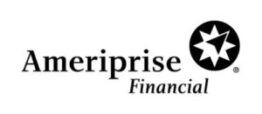
Cheryl Ann Stallings of Amarillo Texas a stockbroker formerly employed by LPL Financial LLC has been barred from associating with any Financial Industry Regulatory Authority (FINRA) member in any capacity based upon consenting to findings that (1) Stallings violated the firms supervisory procedures and systems (2) Stallings impermissibly utilized the funds of an LPL Financial customer and (3) Stallings made misrepresentations and false statements to the firm about her activities. Letter of Acceptance Waiver and Consent No. 2016051267401 (Nov. 19, 2018).
According to the AWC, on May 1, 2014, an individual retirement account had been opened by customer CC – a terminally ill individual. Evidently, CC established the account by transferring funds from an employer account. The AWC stated that CC had been assisted by Stallings in going to CC’s bank at which point Stallings signed documents that provided her authority to withdrawal money from CC’s account. CC apparently listed Stallings as a beneficiary on the account. As a result, Stallings reportedly received $9,000.00 in funds from CC’s accounts when CC died.
A similar arrangement transpired with customer MN – a senior investor whose accounts had been serviced by Stallings beginning in 2011. Apparently, Stallings had been added to MN’s account and later made a beneficiary of it. Stallings reportedly signed documents which provided her control of the customer’s account. The AWC stated that when MN died, Stallings received $53,000.00 from MN’s account.
During the time that Stallings was associated with LPL Financial, the firm’s supervisory procedures proscribed registered representatives from becoming a beneficiary of a customer’s accounts and taking custody of customers’ funds. The AWC additionally stated that Stallings became CC’s power of attorney in April of 2014; however, Stallings was forbidden from assuming that designation without the firm’s approval. Stallings never obtained LPL’s approval. FINRA found that Stallings circumvented the firm’s policies through becoming a beneficiary of the customers’ accounts, assuming control of their accounts, and becoming a power of attorney without the firm’s permission. Consequently, FINRA concluded that Stallings’ conduct was violative of FINRA Rule 2010.
Moreover, Stallings reportedly misused MN’s funds after she died. Evidently, by October of 2015, transfers of funds had been executed from the LPL account owned by MN into the very bank account whose funds were provided to Stallings. The AWC stated that Stallings was not the intended recipient of those funds because of MN designating brokerage assets to other beneficiaries. Stallings purportedly improperly used the dividends and interest from that brokerage account for Stallings’ own purposes instead of providing the money to the proper beneficiaries. FINRA found that Stallings’ improper use of customer funds was violative of FINRA Rule 2010 and 2150.
Further, FINRA stated that Stallings falsified documents to LPL Financial in September of 2015 so that she could become a trustee on MN’s trust. Particularly, Stallings lied about her relationship to MN. Stallings additionally falsified information within the compliance questionnaire administered to her by the firm in 2015, claiming that she was not a beneficiary of MN’s account or a trustee on MN’s account when she was actually a beneficiary and a trustee. Moreover, the AWC stated that Stallings supposedly lied about not having been provided any control over customer funds. FINRA found Stallings’ misrepresentations and false statements to LPL Financial to be violative of FINRA Rule 2010.
LPL Financial discharged Stallings on July 6, 2017 based upon allegations that Stallings lied to the firm about her ownership of customer assets and fiduciary capacities.
The information contained herein has been obtained from reliable sources however may not be accurate and is not guaranteed by us. Readers are encouraged to undertake their own independent investigation and evaluation of the relevant facts. All claims and allegations are subject to adjudication, decisions may be subject to appeal, and no inference is intended, nor should any inference be made from any information contained herein from any source.
This posting and the information on our website is for general information purposes only. This content should be not considered legal advice, and any responses, comments, e-mails, other communications do not form any attorney client relationship. Attorney Advertisement. See Important Disclaimer
Guiliano Law Group
Our practice is limited to the representation of investors. Over the last three decades, we have recovered more than a hundred million dollars for more than 1,000 injured investors from all over the United States and several foreign countries. We accept representation purely on a contingent fee basis, meaning there is no cost to you unless we make a recovery for you. There is never any charge for a confidential consultation or an evaluation of your claim. For more information, contact us at (877) SEC-ATTY.
For more information concerning common claims against stockbrokers and investment professionals, please visit us at securitiesarbitrations.com
To learn more about FINRA Securities Arbitration, and the legal process, please visit us at securitiesarbitrations.com








